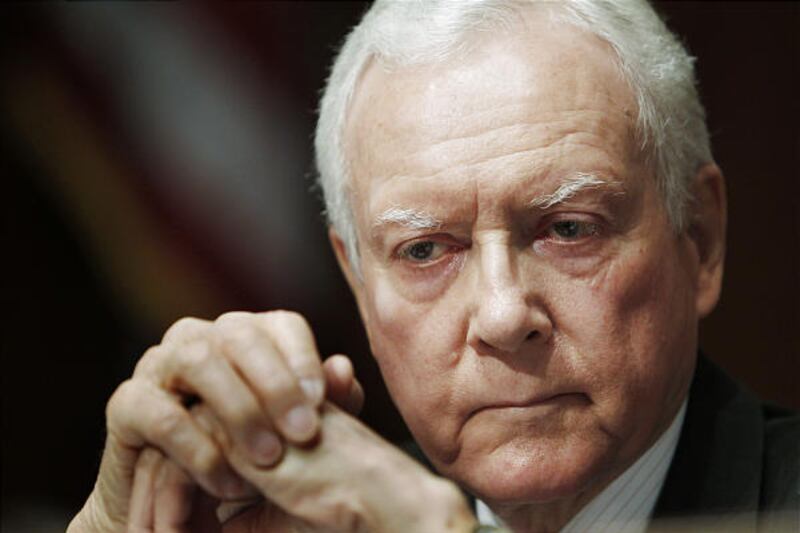The first thing I learned working for Sen. Orrin Hatch was that he loved his time as a young boxer. Growing up a skinny kid in Pittsburgh, Pennsylvania, he constantly had to fight to win both inside the ring and out. Even though he gave up his gloves for a law degree, boxing was always part of Hatch’s personality, and one of his most cherished accomplishments was his decades long friendship with fellow boxer Muhammad Ali.
And even though Hatch is no longer in the U.S. Senate, he’s still fighting for Utah.
In February, former Sen. Hatch and others submitted an amicus brief to the Supreme Court in favor of Oracle, which will square off in the highest ring in the country this month against the mother of all heavyweights: Google. On March 24, the Supreme Court will hear oral arguments in what is being called the “copyright case of the century,” wherein Oracle alleges Google stole a portion of its famous Java script programming language.
Following a round of failed negotiations between the two parties over the Java program’s license many years ago, Google chose to partition off and copy entire sections of Java’s declarative code. Specifically, Google copied from Oracle a total of 37 application programming interfaces, or API, systems which mediate how Java operates with other systems. Oracle sued, alleging copyright infringement — since the entire Java program was protected under internet protocol law. And after years in the federal court system, the Supreme Court agreed to hear the case.
Google argues that APIs aren’t copyrightable and, therefore, shouldn’t be protected under copyright claims. The Silicon Valley behemoth contends that its engineers hitting Ctrl+C then Ctrl+V constituted “fair use” under the law, even though the code was already under copyright.
The case is a landmark copyright case with enormous implications for digital copyright protections in the future.
Hatch’s support for Oracle matters because it undermines one of Google’s key arguments in the case: the contention that the protection afforded under the Computer Software Act of 1980 should not extend to declarative code. Hatch was there when the law was passed many years ago and can directly reaffirm the purpose and intention behind it — sternly rebuking Google’s legal talking point.
A longtime defender of internet protocol rights, this brief helps Hatch cement his legacy of protecting innovators.
This case is of particular interest to Utah itself, given its thriving tech industry. Ranked among the top 10 most innovative states in the union, Utah leads the country in value for the tech industry. Our Silicon Slopes are imminently livable communities, unlike in Silicon Valley, where Google and others have made life so unaffordable they’ve spawned tent cities right next to their palaces.
Were Google to win the case against Oracle, much of the innovation driving Utah’s economic growth would evaporate.
Google’s image has taken an enormous drubbing lately. Its executives have been caught scheming to subvert U.S. elections, with The Wall Street Journal confirming that, yes, it manipulates search results based on its political biases. Google’s “Project Nightingale” was discovered to have been hoarding the private health care data of millions. Virtually every attorney general in the country has put Google under an antitrust investigation while the European Union fined the company €1.7 billion for abusing its market position against competing platforms. And it got caught sharing the “crown jewel” of its artificial intelligence with the Chinese government.
All this from the company that for years claimed its mantra was, “Don’t be evil.” Maybe Google meant it back then, maybe not. But at least in this instance, the Supreme Court will help it to be a little less evil now. And if Sen. Hatch gives the company a nice KO in court, everyone will cheer.
Jared Whitely is a longtime D.C. politico, having served in the U.S. Senate under Sen. Hatch, the White House under President Bush, and the defense industry.


